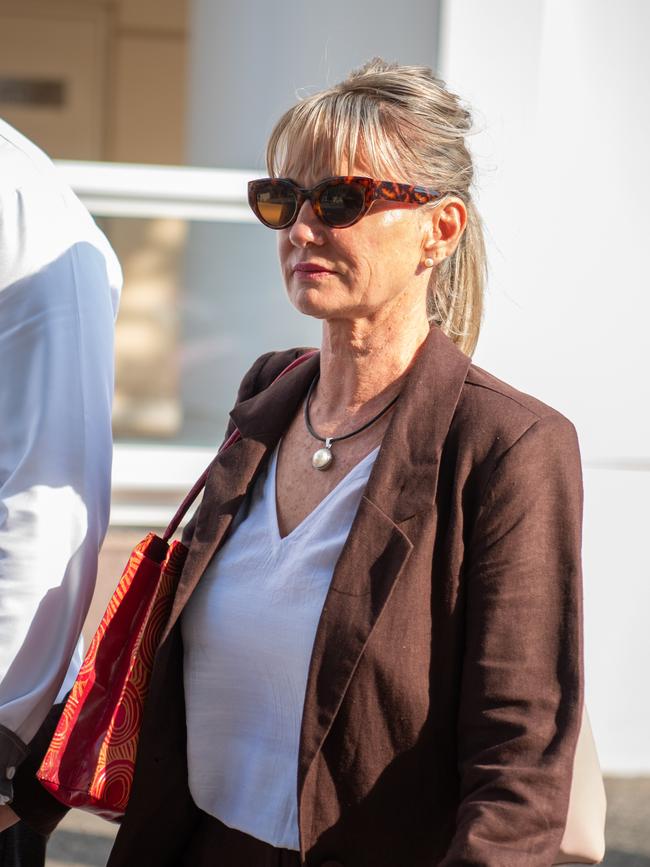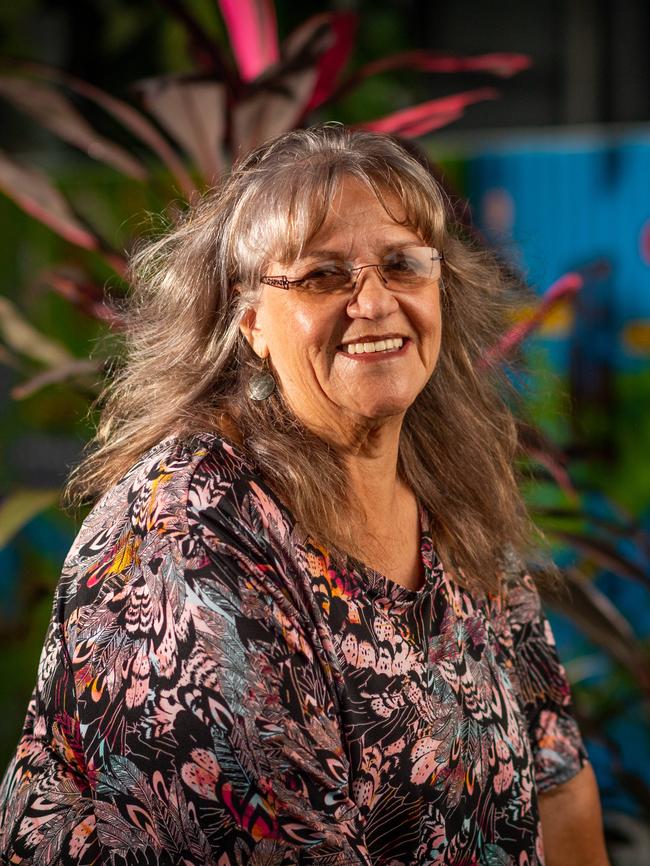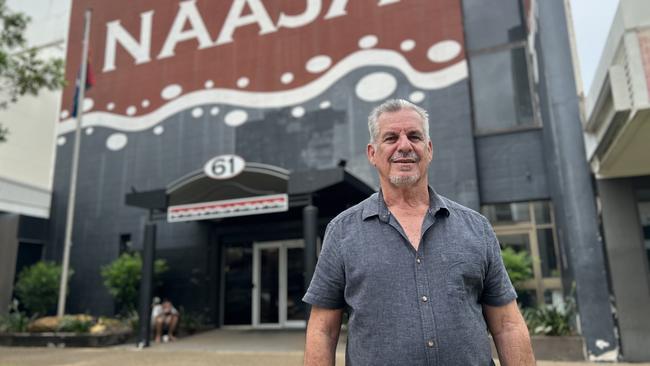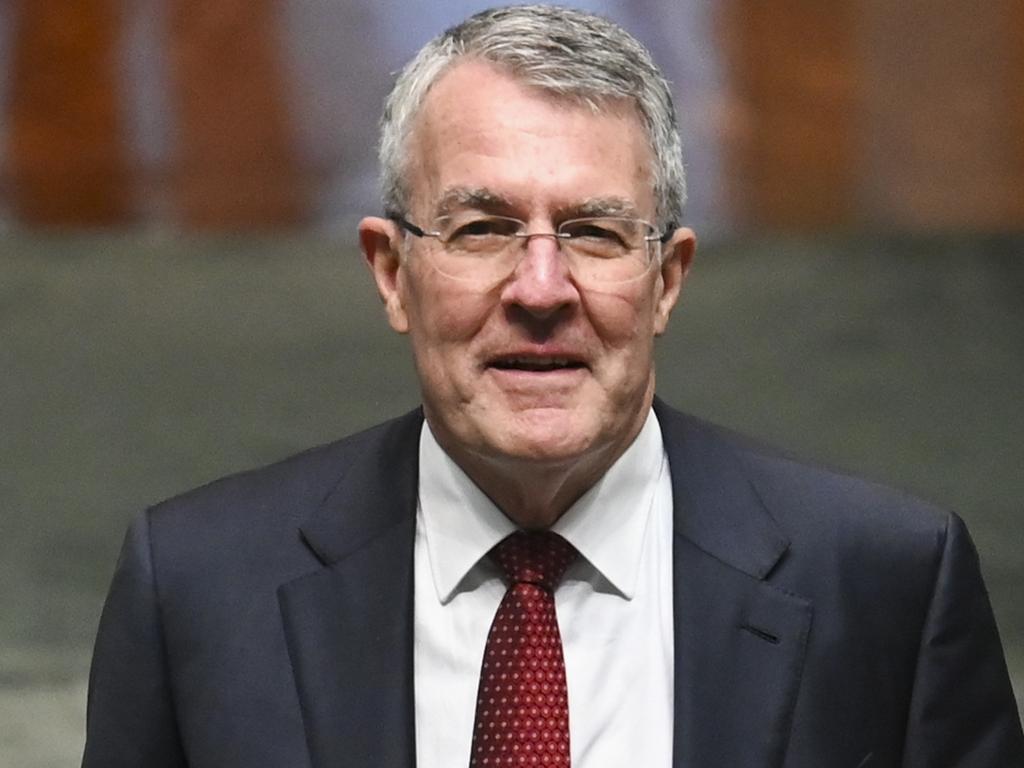NAAJA chief executive Phil Brown resigns amid company chaos
Australia’s largest Aboriginal legal service has lost its fifth boss in 18 months, as a former senior lawyer pans a ‘culture of nepotism’ ruling the besieged organisation.

The North Australian Aboriginal Justice Agency has lost its fifth chief executive in 18 months, as the upper management of the besieged organisation continues to be gripped by chaos.
Phil Brown has stepped down in a shock departure from his position as acting CEO, having only been in the role for four months.
The Australian understands Mr Brown advised the NAAJA board and the Northern Territory Attorney-General’s Department of his decision this month. He is the nephew of NAAJA deputy chair Colleen Rosas, whom the Federal Court last month found had engaged in corrupt behaviour when sacking former CEO Priscilla Atkins. Ms Rosas has denied any allegations of wrongdoing.
Judge Natalie Charlesworth found the board, under the leadership of Ms Rosas, acted unfairly when instigating a so-called independent audit targeting Ms Atkins, after she levelled corruption allegations at finance chief Madhur Evans.
She also found Ms Rosas, who was then the chair of the organisation, deliberately withheld information from the audit, conduct “not consistent with a genuine desire” for the audit to make fair and factual findings.


Mr Brown’s resignation adds to the disorder plaguing upper management of the beleaguered legal service, after The Australian this year revealed incumbent chair Hugh Woodbury – who replaced Ms Rosas – assaulted his pregnant partner by standing on her stomach, slamming her arm in a door, pushing her to the ground and swearing at her.
Concerning activity within the NAAJA – which culminated in a mass exodus of staff and the agency having to suspend services in Alice Springs for six months – has led lawyers and MPs to call for the organisation’s board to be “hosed out” and replaced entirely.
A former senior NAAJA lawyer, who spoke only on the condition of anonymity, said the government should have “torn down” the organisation following the findings of Ms Atkins’ case.
“There is a culture of nepotism within NAAJA,” the lawyer said.
“It’s just getting worse and worse. There are all these young lawyers who come in from interstate who are eager and want to help, but the upper management makes it impossible.”
The lawyer said NAAJA should be “shut down and started over”.
A NAAJA spokesman said Mr Brown had stood down for “family reasons”. “He intends to continue in the role until a replacement is appointed to assist with an orderly transition,” the spokesman said.
The Australian understands NAAJA is bound by a court order preventing it from hiring a permanent CEO in the midst of Ms Atkins’ unfair dismissal case.
NAAJA this month appointed Matthew Connop as acting deputy CEO, replacing Leeanne Caton, who made a surprise departure last month. NAAJA at the time said Ms Caton was serving in a temporary capacity and had “resigned for personal reasons”.
Mr Brown replaced outgoing CEO Darryl Pearce in February.
At the time, Ms Rosas said his exit was the natural end to his three-month contract. However, just weeks earlier Mr Pearce had told media he would “stick around for as long as they want me”.

Mr Pearce had replaced Olga Havnen, who left claiming the NAAJA board needed to be removed immediately. In an exclusive interview with The Australian this year, Ms Havnen said “the board has struggled to deal effectively with strategic and risk challenges facing NAAJA”.
“There are no independent non-member directors and I don’t believe that directors have the requisite high-level skills, knowledge or expertise necessary for ensuring appropriate oversight of management and operations of a large complex organisation,” she said. “They simply do not understand what is necessary for good corporate governance.”
Ms Havnen quit after three months, having replaced John Paterson, who lasted six months.
Mr Paterson stood in after longtime boss Ms Atkins was ousted in late 2022, sparking the Federal Court unfair dismissal dispute.
Ms Atkins alleged she was fired after accusing current CFO Ms Evans of making discreet payments directly to Ms Rosas, bullying employees, recording interactions with colleagues without their permission, disclosing confidential company information and failing to use her work-issued credit card in accordance with policy.
The court heard that upon learning of Ms Atkins’ allegations against Ms Evans, Ms Rosas accused Ms Atkins of forging her signature on a contract extension document, securing her position as chief executive – and its $350,000 salary – for another five years. Justice Charlesworth found there was “insufficient” evidence to support this accusation.





